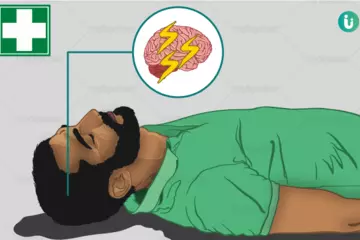What is flu (influenza)?
Flu (influenza) is a common infectious viral illness, which spreads through coughing and sneezing.
You may get flu any time of the year, but more commonly, in the winter season; hence, it is also known as seasonal flu. Influenza is caused by RNA viruses, which infect the respiratory tract. Compared to other viral infections like common cold, influenza virus can cause severe illness with a mortality rate of 0.1%. Most often, influenza resolves in about a week or 10 days.
Children under 5 years of age and adults over 65 years of age are at a higher risk of getting infected with the influenza virus. Pregnant women, individuals with weak immunity, those working at a health care centre, and individuals suffering from chronic respiratory illness are also at greater risk of influenza infection.
What are its main signs and symptoms?
Initially, flu may feel like any other common cold. Common symptoms maybe a sore throat, runny nose, and sneezing. The major difference between cold and flu is that the flu develops rapidly unlike cold. The symptoms usually develop within 1 to 3 days following infection and usually people feel better within a week.
The symptoms of flu are listed below:
- Sudden fever of 38C(100.4F) or above
- Soreness of throat
- Loss of appetite
- Headache
- Dry cough
- Diarrhoea
- Nausea
- Nasal congestion
What are the main causes?
Influenza virus causes flu and is of three types- influenza A, B, and C. Types A and B cause severe infection of the respiratory tract often leading to epidemic-like condition with higher death rate compared to type C.
The virus is transmitted from an infected person either through sneezing, coughing or talking. Sometimes, you may directly inhale the infected droplets or get infected from touching the surfaces contaminated by the virus. Infected individuals are highly contagious even before symptoms begin- first five days before the first symptom appears.
The influenza virus undergoes constant change over time i.e. they undergo mutation. This makes you prone to viral infections throughout your life.
How is it diagnosed and treated?
You should rest at home and drink plenty of water to stay hydrated. You should also visit the doctor for a check-up. Your doctor may collect your respiratory samples to test for polymerase chain reaction (PCR), rapid antigen test or immunofluorescence assay.
Then, your doctor will prescribe you with antiviral medication. These antiviral medications have few side effects like nausea and vomiting.
Symptomatic treatment is also prescribed to reduce fever and reduce discomfort with the help of antipyretics and anti-inflammatory drugs. In case of infants, breastfeeding frequency should be increased to maintain the hydration level of the baby.

 Doctors for Flu (Influenza)
Doctors for Flu (Influenza)  OTC Medicines for Flu (Influenza)
OTC Medicines for Flu (Influenza)



















